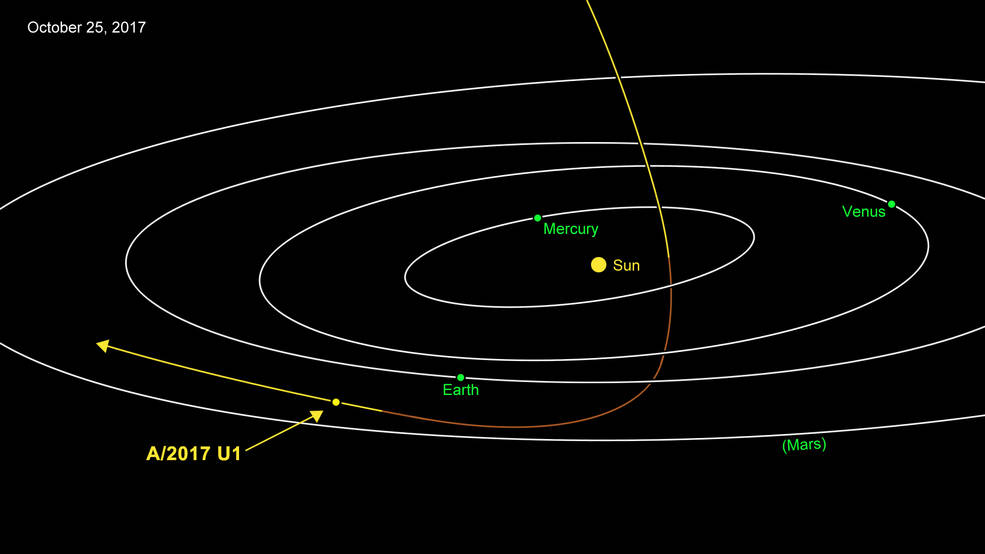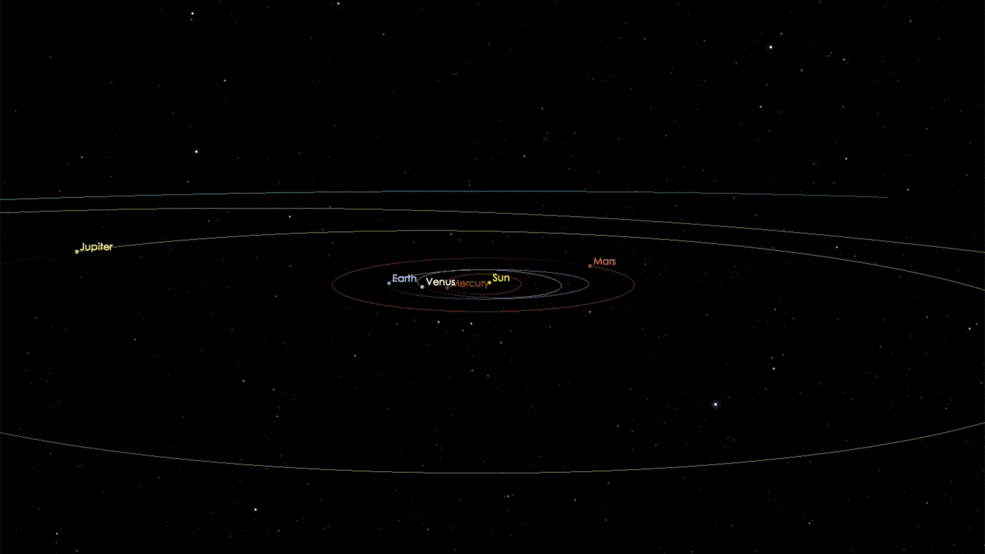Strange interstellar object enters solar system, detected by scientists for the first time

Image: NASA/Jet Propulsion Labs-Caltech
NASA recently discovered a small, previously undetected interstellar object enter our solar system. The object seemed like an asteroid or a comet, and it appeared to have come from outside the solar system.
A statement from the space agency designated the object as A/2017 U1. It measures around 400 meters in diameter and moved remarkably fast.
Rob Weryk, a postdoctoral researcher at the University of Hawaii Institute for Astronomy (IfA), first spotted the object in October 19 and submitted his discovery to the Minor Planet Center.
“Its motion could not be explained using either a normal solar system asteroid or comet orbit,” he said.
Weryk contacted IfA graduate Marco Micheli, who crosschecked the object’s path with his own follow-up images taken at the European Space Agency’s telescope on Tenerife in the Canary Islands.
With the combined data, the researchers concluded that it came from outside the solar system.
Scientists plotted the object’s trajectory and discovered that it came from “above” the solar system’s plane and sling-shot around the sun to move back into interstellar space. They calculated that it had been closest to the sun on Sept. 9 while traveling at 44 kilometers per second.

Image: NASA/Jet Propulsion Labs -Caltech
A/2017 U1 turned out to be the first recorded interstellar object to visit our solar system.
“We have long suspected that these objects should exist, because during the process of planet formation a lot of material should be ejected from planetary systems. What’s most surprising is that we’ve never seen interstellar objects pass through before,” said Karen Meech, IfA astronomer specializing in small bodies and their connection to solar system formation.
Center for Near-Earth Object Studies manager Paul Chodas noted, “So far, everything indicates this is likely an interstellar object, but more data would help to confirm it.” JB
RELATED STORIES:
Stephen Hawking doctorate thesis now available for public viewing
Gravitational wave seen by three detectors, all at once, for the first time
WATCH: Solar eclipse X-ray photos captured by Hinode satellite